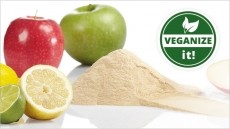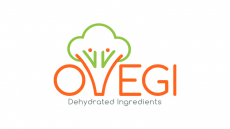Round salt breakthrough could help food industry
first practical method for making round salt.
Although the concept might sound a little strange, the researchers believe that the breakthrough could revolutionise the use of salt in food production.
Caking of water-soluble salt, which normally exists in familiar cube-shaped crystals, is a common problem for food production and storage.
Caking is believed to occur because of the formation of solid intercrystalline bridges that cement crystals together.
Evaporation of minute amounts of water on the surface of the crystals causes the formation of these intercrystalline bridges, and leads to caking.
However, the intercrystalline surface area of contact is greatly reduced in the case of spherical or near-spherical crystallites, which gives the salt free-flow characteristics.
Round salt's big advantage over ordinary salt therefore, is its ability to flow freely without caking.
Achieving round salt is not easy. However, the researchers believe they have shown that glycine is an effective habit modifier of common salt when crystallization of such salt is carried out under ambient conditions such as undertaken during solar salt production.
Moreover, the modification is equally effective with pure NaCl solution and natural brines such as subsoil and sea brines. The researchers have developed a process that washes away glycine that crystallizes along with salt, while enabling the salt itself to retain its rhombic dodecahedron habit.
Such washing is accomplished with a fresh lot of saturated brine, which can then be made to yield a fresh crop of modified salt crystals. In this manner, the glycine can be recycled.
The salt crystals were confirmed to have superior free-flow characteristics compared to the normal cubic salt crystals. The researchers believe that their studies show that the process of habit modification as developed may be useful in production of free-flowing NaCl crystals.
The breakthrough could help the food industry. But a bigger market may be industries that store and use sodium chloride by the ton, such as the chemical and pharmaceutical industries.
For these companies, non-caking salt can be a boon that keeps sodium chloride flowing freely along the production line.
The research group, from the Central Salt & Marine Chemicals Research Institute in Bhavnagar, India, developed the new free-flowing table salt in collaboration with a major food company in India.
Pushpito K. Ghosh, P. Dastidar and colleagues plan to publish their findings in the 5 July issue of Crystal Growth & Design.




















